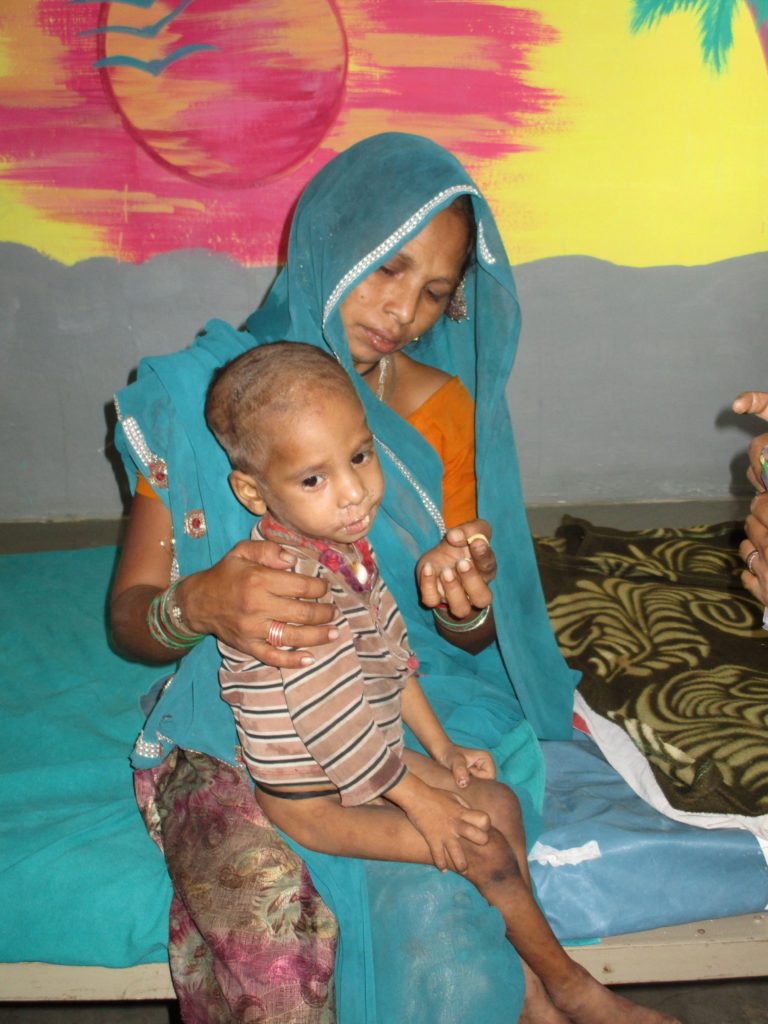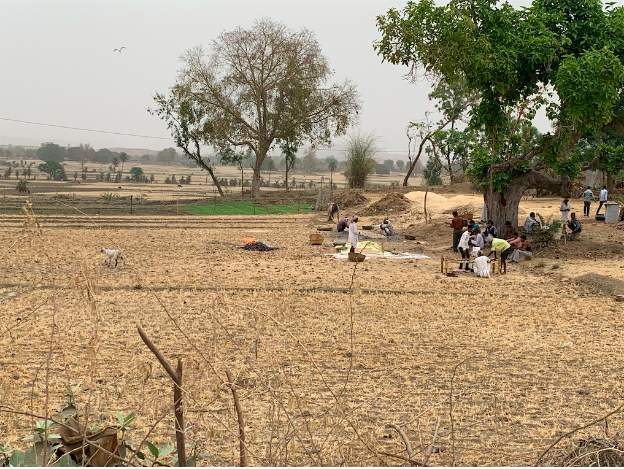Health of tribal, migrant populations:Reflections of a young intern
Rajasthan’s terrain consists mainly of deserts and small forests that are scattered across the state. For decades, these forests housed different tribal groups. These societies relied on the forests for plants that could be used for tools, shelter, and other goods. They developed simple farming techniques that allowed them to grow crops for food, and tribes used a bartering system to trade goods. However, the forest proved to be a barrier between the tribal colonies and the modern world. They were not affected by new technologies such as mobile phones or computers because they were never necessary for their daily lives. Some years later, new forest preservation laws were put into place, which stated that people could not settle in forest regions. The tribals moved to a drier terrain and soon learned that the agriculture techniques they had used in the forest did not work on the new land. Out of desperation, families began migrating to bigger cities like Mumbai and Ahmedabad in search of work. Due to their lack of skills and water for agriculture, they could only find temporary jobs in construction sites, factories, or hotels. The tribals found themselves suddenly surrounded by unfamiliar customs and methods, and they struggled to fit in with this new world.
Despite the many developments in recent years, the tribal still face the same problems to this day. Millions of tribals, from young teenagers to seniors, search for day jobs to help support their families. These jobs often require laborers to work long, tiresome hours and to reside in small shacks housing as many as ten workers, the perfect breeding ground for bacteria and viruses. Because of low wages, filthy living conditions, and the immediate need for food and water, healthcare is not a priority to these people, leading to unhygienic habits and increased vulnerability to illnesses. For generations, the tribal people had relied on shamans to ward off illnesses, but today, the shamans are fairly uninformed on the major diseases that affect today’s world.

In addition to harsh living conditions, they are also plagued with malnutrition, consequent weak immunity, and many increased risks of illnesses. Basic needs such as food and shelter get prioritized over hygiene and healthcare. This lifestyle leads them to de-emphasize the importance of healthy living. With so many burdens, like providing for a full family with minimal income, tribal members ignore illnesses, both common and life-threatening, because they are completely dependent on daily wages.
The one issue that is common among most members of the tribal groups is a condition known as severe acute malnutrition (SAM). Severe acute malnutrition is a consequence of a poor diet, a lack of nutrition, and increased burden of illnesses. Some common symptoms include serious weight loss, increased incidences of illnesses, and irritability/lethargy. If left untreated, SAM can lead to impaired physical and mental development, especially in growing children. Compared to a healthy body mass index of about 18.5 to 24.9, the average body mass index of the tribal people is 16. One of the main reasons that tribal members have such low body mass indexes is because they simply cannot afford enough food to feed their entire family, including themselves, their children, and the elders. This lack of nutrition serves as a gateway for other, more severe illnesses.
Many migrant workers find jobs at construction sites where they are constantly inhaling dust and other harmful materials. The dust damages their respiratory system, and, with a poor nutritional status and crowded living areas, increases the transmission of Myco Bacterium tuberculosis, the causative agent for tuberculosis. Tuberculosis mainly affects the lungs and causes weakness, persistent coughing, chest pain, and weight loss. If left untreated, the disease can spread to other parts of the body, potentially leading to meningitis, joint destruction, abdominal tuberculosis, and TB in lymph nodes. The bacteria tend to attack people with a compromised immune system, making the construction workers perfect targets as many of them are malnourished. The disease is contagious and can easily spread from person to person through respiratory droplets. Because the workers live in cramped quarters, tuberculosis rapidly spreads in worker colonies. Workers do not seek out medical attention because of the insidious onset of the disease, fear, the stigma surrounding the disease, and a lack of familiarity with the health system.
While malnutrition and tuberculosis are common conditions among the migrant population, several other illnesses, such as anemia, pneumonia, and sexually transmitted infections, are present among the tribal people. Poor eating habits lead to a lack of vital vitamins and minerals in the bloodstream. Many tribal members experience anemia due to iron or vitamin deficiency. Anemia can cause general fatigue and an impaired ability to work. Such issues would make working day jobs a more laborious task. Pneumonia is another serious illness, especially amongst children. Like tuberculosis, pneumonia targets the lungs of weaker individuals and causes inflammation in airspaces. If not properly treated, pneumonia can quickly lead to death. Many tribals believe that their tribe’s shaman (traditional healer) or local, unqualified providers can successfully wark off their illnesses. Unfortunately, these providers do not have access to the proper medicines to treat their patients. They resort to giving out steroids, sugar injections, and superstitious remedies, which only provide temporary relief. In addition, shamans spread superstitions about illnesses, claiming that certain foods, like oil and rice, should not be consumed when ill. Such superstitions only worsen an individual’s conditions.
Basic Healthcare Services strives to improve medical care around tribal ad migrant workers. Through nutritional programs and primary healthcare services, the organization is slowly raising awareness among the population about the importance of health maintenance. By facilitating primary health care services in various villages around Udaipur, BHS is trying to provide long term remedies for deadlier illnesses and train local shamans to help the not so literate villagers to care about themselves and not give in to superstition. Stay tuned to learn more about the various treatment programs that BHS has to offer.
-Sanjana Narayanan is a school student from California,USA.She interned with Basic Healthcare Services(BHS) and wrote this blog based on the time spent with us at the AMRIT clinics.

